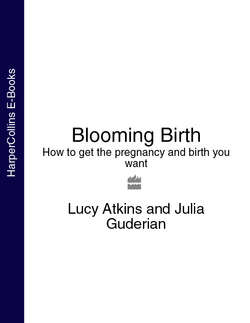Читать книгу Blooming Birth: How to get the pregnancy and birth you want - Lucy Atkins - Страница 12
Less positive emotions Depression
ОглавлениеEveryone expects you to feel elated and special but you just feel even less like getting out of bed in the morning. Depression can be particularly isolating in pregnancy, yet it’s rarely talked about. One recent study found that not only is antenatal depression considerably more common than was previously thought – around 10 per cent of pregnant women, the study found, are depressed – it is mostly missed by doctors. In the study, only five of the 41 women with antenatal depression were identified by their GP as depressed.2 Depression can have serious effects on your health and that of your baby: depressed women may be less likely to keep antenatal appointments, eat well and do what’s best for their baby. There is also thought to be some link between antenatal depression and postnatal depression. You should always tell your midwife or doctor if you are feeling depressed as you may need their help.
If you are already depressed and taking antidepressants you’re hardly alone: according to mental health charity MIND, between 1990 and 1995 the number of prescriptions for antidepressants such as Prozac rose by 732 per cent in England alone. Being pregnant does not necessarily mean you have to ditch your meds and feel suicidal for nine months: some depression drugs are considered safe to take in pregnancy but others are not. So talk to your doctor the minute you know you’re pregnant.
Where to go for help:
Start with your GP, midwife or health visitor.
The Depression Alliance provides information for mothers and pregnant women who are isolated and lonely or experiencing depression. 35 Westminster Bridge Road London SE1 7JB. 0845 123 23 20 www.depressionalliance.org (ask for their booklet Depression During and After Pregnancy)
Meet-a-Mum Association Postnatal Illness Helpline can also help with pregnancy depression. 0845 120 3746
The mental health charity MIND has an online information service for users of mental health services, carers and other groups. For information on types of mental distress, treatments, therapies and legal information: 08457 660163 (9.15am–4.45pm everyday) www.mind.org.uk
Online:
www.depression-in-pregnancy.org.uk
Further reading:
Antenatal and Postnatal Depression by Siobhan Curham (Vermilion, UK, 2000)
